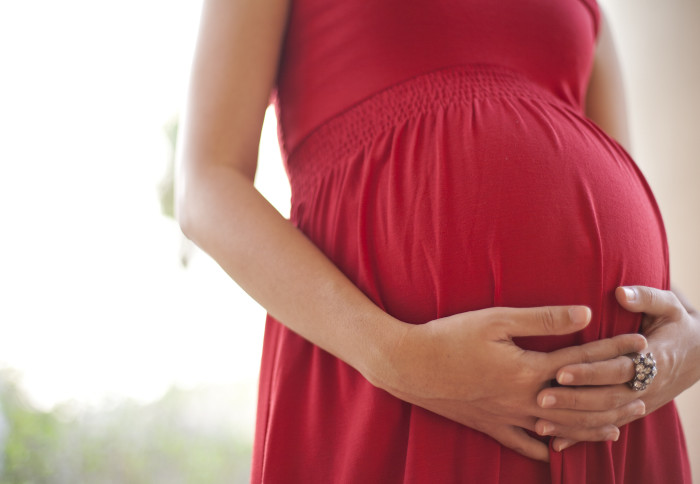What do I need to know about Group B Strep?

As July marks Group B Strep Awareness Month, we speak to Dr. Elita Jauneikaite about what Group B Strep is and the implications of a positive result.
Most people have never heard of Group B Strep (GBS) yet it is one of the most common causes of life-threatening infections in newborn babies. Many families first hear of Group B Strep after their baby is seriously ill with GBS meningitis, sepsis or pneumonia. As a type of bacteria called streptococcal bacteria, GBS is typically harmless but can cause problems for some groups of people including those who are pregnant and newborn babies. Unlike in other countries, Group B Strep is not routinely tested for in the UK and most people will not realise they have it, as it often lives harmlessly in the gut.
As July marks Group B Strep Awareness Month, we speak to Dr. Elita Jauneikaite, Advanced Research Fellow in the School of Public Health, who has been researching GBS for over seven years.
What is Group B Strep?
Group B Strep is a species of bacteria known as Streptococcus agalactiae. It is very common in humans (20-40 per cent of all people can have it) and usually lives in the intestines, rectum and vagina.
What disease does Group B Strep cause and what are the symptoms?
Group B Strep is normally harmless and a person is unlikely to realise they have it. However, Group B Strep can cause disease in young babies (especially, prematurely born babies are at higher risk of Group B Strep infections), the elderly and those who may already have a weakened immune system. Group B Strep can cause urinary tract infections, blood infections and meningitis and the symptoms would include a fever and general feeling unwell. For babies it would include reduced feeding, being floppy or unresponsive. More details can be found on the GBS Support website and NHS website.
Why and when should women test for GBS in pregnancy?
Testing for GBS in pregnancy is not routinely offered in the UK. Testing is usually only offered to those who had GBS in their previous pregnancy. If someone is advised to have a test while pregnant or decides to have one privately, it is recommended this takes place within the last five weeks before they are due to give birth (between 35-37 weeks’ of pregnancy).
What does a positive GBS results mean?
A positive GBS result means that you are carrying GBS - but carrying GBS isn’t an problem for most people. If you test positive for GBS when you are pregnant, it does not necessarily mean that your baby will get a GBS infection, the vast majority of babies born to GBS positive parents do not develop infection. However, it is important to share this information with your pregnancy-care provider so they can offer treatment if needed.
What are the risk factors of GBS?
"As GBS is a common bacteria found in humans, there are very few risks unless you are pregnant." Dr Elita Jauneikaite
As GBS is a common bacteria found in humans, there are very few risks unless you are pregnant. GBS can cause disease in small babies, especially if a baby is born prematurely. Other risks include, if someone may have previously had a baby with a GBS infection, if they had a GBS positive test result, or if they had a fever during the labour.
How is GBS passed from one person to another?
Like many bacteria that live in or on our bodies, GBS can be transmitted from skin-to-skin contact so maintaining good hand hygiene is encouraged as much as possible. If you are GBS positive, it can also be transmitted during birth through a vaginal delivery. If this is the case, national guidelines recommends that intravenous antibiotics is offered during labour.
How can you treat a GBS infection?
GBS infection is successfully treated with antibiotics, usually penicillin. For people with penicillin allergies alternative antibiotic options are given. Treatment options might also differ depending on what type of infection you have. It has been shown that intravenous antibiotics given in labour is highly effective at reducing the risk of GBS infection in newborn babies, without any known long-term side-effects on the baby
What is your research into Group B Strep?
I am looking into DNA sequences of carried and disease-causing GBS in combination with epidemiological data. My research examines the date when the isolate was collected, if it was collected from an adult or baby, whether it caused a disease and what antibiotic was used for treatment. I am especially interested in whether these specific forms of GBS are more likely to cause disease, be potentially transmitted from parent-to-baby, or are more likely to become resistant to antibiotics overtime.
Why is it important to understand how GBS may evolve over time?
Monitoring the different types of GBS variants over time helps us to understand how the GBS bacterial population is adapting. For example, these changes could be due to the usage of specific antibiotics and if so, consideration is needed as to the changes in GBS antibiotic treatment.
Article text (excluding photos or graphics) © Imperial College London.
Photos and graphics subject to third party copyright used with permission or © Imperial College London.
Reporter
Elinor Pegler
Faculty of Engineering